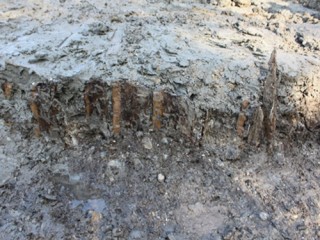- Archaeological News
-
 Image Credit: INGV
Image Credit: INGV
Ancient Sea Walls Reveal 2000 Years of Change
Archaeologists have uncovered wooden palisades off the coast of Grado, northeastern Italy, that provide a rare record of sea-level changes since Roman times.
The three structures, built between the 1st and 6th centuries AD, were part of coastal defences and land reclamation systems. Radiocarbon and tree-ring dating show that the earliest palisade, from the Roman Imperial period, now lies 60 cm below today’s sea level, suggesting the sea once stood 1.2 metres lower. By AD 566, sea level had risen at least 40 cm, submerging another palisade.
The findings not only illuminate how ancient communities adapted to environmental shifts but also help scientists refine models of long-term sea-level rise in the Adriatic. Experts warn that, with modern climate change, Italy’s coasts remain highly vulnerable—about 30% of the population lives in these areas, with projections of a further 0.5 m rise by 2100.
Published on: 10-10-2025
Edited by: Abdulmnam Samakie
Source: National Institute of Geophysics and Volcanology (INGV)